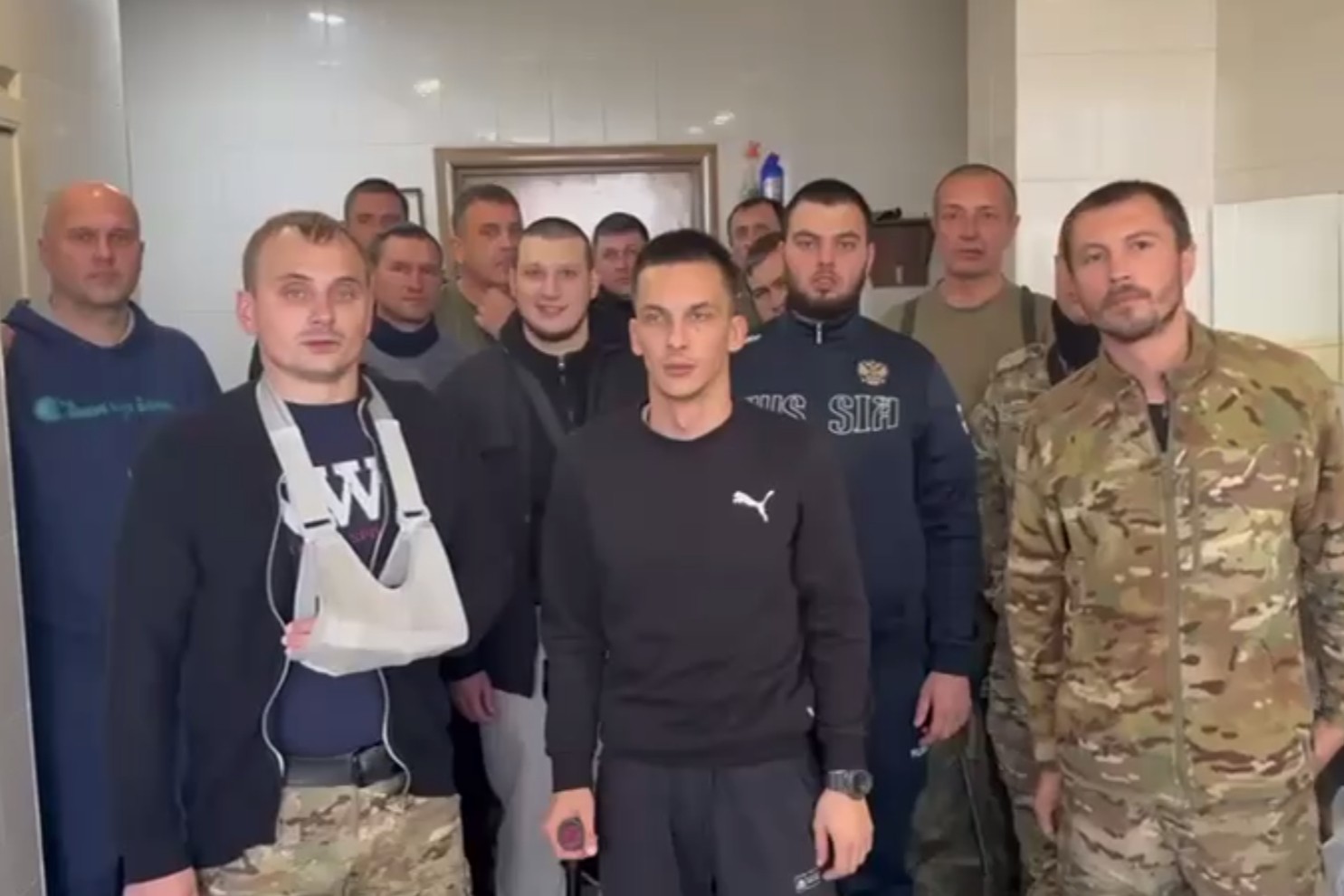
According to a video message shared on Telegram on Wednesday, soldiers from the 7th Russian Military Base in Abkhazia are being sent to the frontlines of Ukraine instead of receiving treatment at a military medical commission.
The soldiers, who belong to military unit 09332, allege they were transferred to the Afipsky district of Krasnodar Krai where they believed they were to attend a medical commission.
‘They are taken to Luhansk, ostensibly to the rear area, but actually to the dugouts. They take away cellular communications and send them to the frontline,’ one of the soldiers seen in the video says about his comrades.
Another soldier, who asked not to be named for security reasons, told OC Media that among the wounded were many who had chronic diseases, including cancer and hepatitis. He added that some even use wheelchairs and were previously declared unfit for military service.
According to the law, military personnel must go through a military medical commission in order to determine their eligibility to serve. Category A means that a person is fully fit for military service, while Category D means that they are not fit under any circumstances.
The soldiers believe that the order to illegally send them to the frontlines in Ukraine was given by Major Kamshin with the knowledge of Lieutenant Colonel Mikhalski and Colonel Osaulenko.
While they have complained to the Military Prosecutor’s Office, there has not yet been a response to their appeal.
On Thursday, the deputy head of the 419th hospital in Krasnodar Krai visited the unit, after which he ordered the hospital to label three men with significant diseases as medically fit for service.
One of them was Vladimir Chureyev, who spoke to OC Media about his experience. A former prisoner, Chureyev signed a contract with the military while in a penal colony in Astrakhan. According to him, his contract was for a year of service, but the military has stated that it is instead indefinite.
Chureyev also claimed that the prison authorities forged his documents. He told OC Media that he received hepatitis and other diseases while in Ukraine, but that he recently received a letter from the prison colony stating that he had been treated for hepatitis for one year already.
Out of the 24 soldiers who recorded the original video message, all of whom are members of the B Company made up of former prisoners as well as mobilised and regular contract soldiers, 12 have already been sent to the front, according to Chureyev. He added that they were all promised that they were being taken to Luhansk for treatment instead.
‘And since they were taken away, they have simply stopped contacting each other,’ Chureyev said.
Another nine soldiers reportedly refused to go, remaining at the military base in Krasnodar Krai.
Chureyev also noted that the videos shared on Telegram showing the soldiers who recorded the video message being sent to the front in handcuffs was not taken this week. Instead, he told OC Media that a similar situation occurred over the summer, and that now, soldiers have agreed to leave the military unit voluntarily.
This is not the first time such complaints have been received from this military unit. In August, 25-year-old Alexander Belov, who has been undergoing medical treatment, spoke about being sent to the frontlines in Ukraine in handcuffs. According to Belov, he was placed in a medical detachment with a crutch and forced to dig dugouts at the line of contact.
Belov also participated in the video message, stating that he refused to go to the frontlines again.
Read in Russian on SOVA News.









